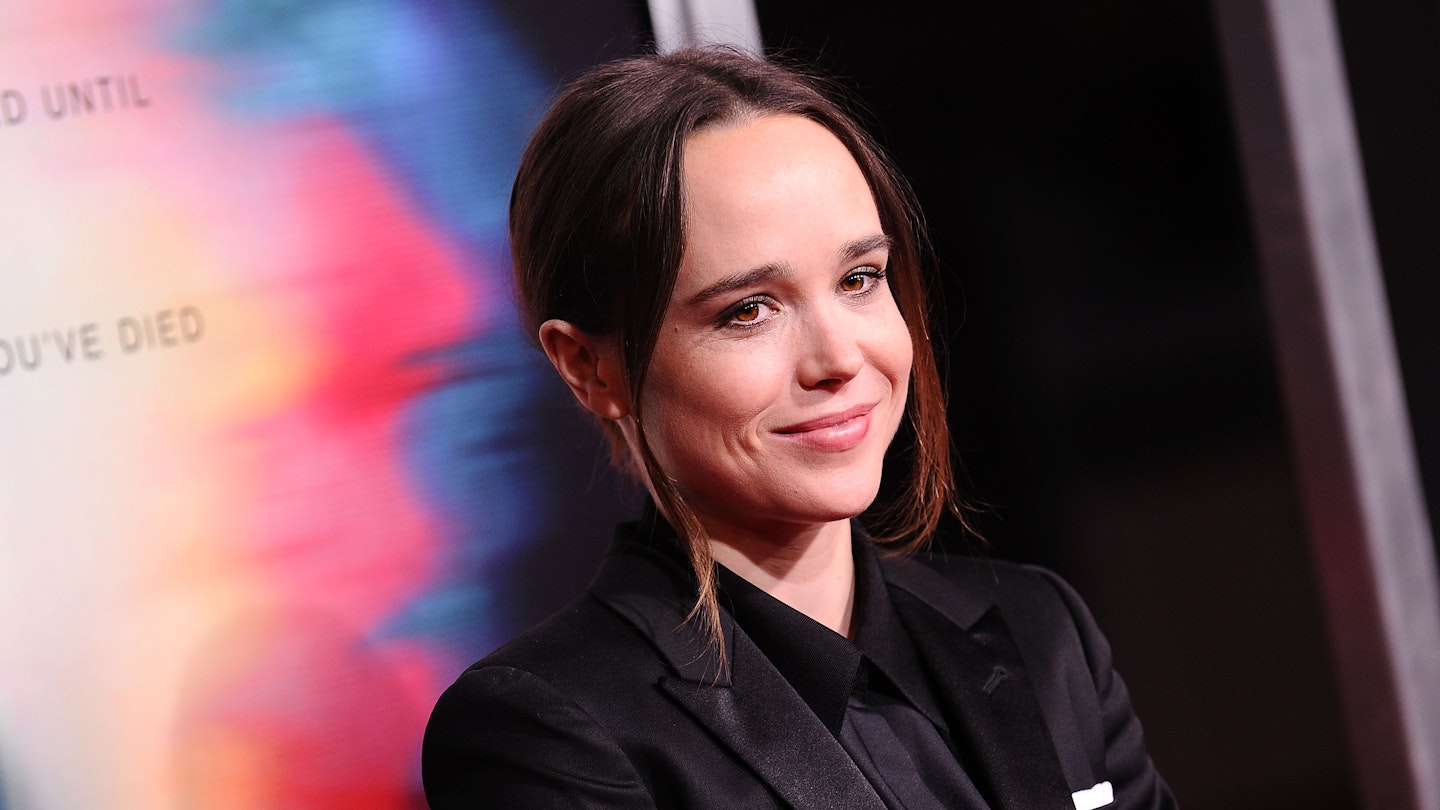On Tuesday night, when Elliot Page came out as transgender, something beautiful happened: other people starting coming out publicly as trans or non-binary. I was one of them. 'Just got a little emotional boost from the news about Elliot Page and I want to say that I’m a they/them now,' I tweeted. 'I have started telling more people in my life about this and it’s scary but it matters to me.'
Like many queer people, I found the nerve to share this about myself because I’d seen someone else do it first. I came out as bisexual when I was a teenager, thanks to two of my best friends who spoke openly about being bi. Now I’m out for a second time, and it’s thanks in part to Elliot Page.
Growing up, the only LGBTQ+ person I remember seeing in pop culture was Willow from Buffy the Vampire Slayer. Her life felt unreal to me, not just because she was a witch who fought off vampires, but because she was an adult with a girlfriend and supportive parental figures in her circle.
When Elliot first came out as gay in 2014 at a Human Rights campaign conference (P.S - it’s a good speech, you can find it on YouTube and they’ve already updated his name in the title) I felt like I understood what he was going through. He seemed utterly terrified. It was no small deal for him to come out to all of those people, and you could see it as their hands and voice shook throughout the speech. Soon after that, I ended up coming out to my own family as bisexual after watching my friends talk about their sexuality openly too.
Seeing supportive messages for Elliot online, I absorbed them as I came out myself.
As soon as he came out as gay back in 2014, he was part of a metaphorical queer family tree - an automatic sense of kinship and solidarity that queer people often feel for one another, just knowing that we will have shared some of the same experiences. With queer celebrities, there’s also an understanding that - like it or not - they represent us as a queer community. We see aspects of our lives as queer people played out by them in tabloids, and if we’re lucky, also in film and TV.
This is why when he came out earlier this week, I had the same pull to speak up about my own identity that I had as a teenager coming out as bisexual. I’d been considering it anyway, having recently started telling friends and my partner that I want to be referred to with gender neutral language, and experimenting with my gender expression. Elliot Page was the final straw in me coming out to thousands of people online. It was perfect timing - my social media was flooded with supportive and loving messages from trans people and allies for Elliot, which I could absorb a little of as I came out myself.
Elliot Page coming out is an opportunity, especially to transmasculine people, to be seen and valued. The stakes are high for Elliot, because he is a well-known and well-liked actor. For those same reasons, it benefits the wider community as much (or more) than it benefits Elliot themselves; he can be a reference point when explaining trans identities to a well-meaning cisgender person. He can also be a role model for aspiring trans actors, and will hopefully play interesting trans roles in film and TV.
Media representation of trans people is still so poor (the 2020 Netflix documentary Disclosure highlights some of the most violent and inhuman portrayals of trans people in media) that just one popular trans actor has the potential to make a big difference, just by continuing to act.
However, on the same day of Elliot (and my) coming out, we also learned that puberty blockers for trans youth were being effectively banned in the UK. Though representation of trans people in media and politics is rising, there is an almost equal rising response of transphobia from public figures. This wave of transphobic hatred which has been strengthening over recent years, has no doubt had an influence on the court’s decision to challenge access to puberty blockers - a decision which effectively forces trans children through the wrong puberty and compromises their bodily autonomy.
Trans allies are needed now more than ever.
Although there are many reasons to be excited by beloved figures coming out as trans or non-binary, it is not enough alone to fight off or reverse the actions of dedicated transphobes who wish to see every comfort and right of trans people stripped away. Trans allies are needed more than ever to challenge these regressive decisions, to step up for the trans community.
My decision to come out as non-binary, inspired by Elliot, was tempered by the knowledge that I was saying something which could make some people hate me. Elliot Page gave me the strength to share it, but the response of transphobic people across Twitter also gave me the abrupt reminder that our small moments of joy can be quickly attacked by those who wish us not to exist. It is something the trans community, including Elliot, will continue to face in years to come.
But there is some beauty in his coming out that cannot be taken away. Elliot Page sharing with the world that they are transgender - along with many others inspired to follow his lead that day - is a reminder on an otherwise bleak day for trans and non-binary people in the UK, that our community continues to grow. That there are more of us to love and fight for every day.
Read More:
'For Trans People Like My Twin Brother, JK Rowling's Comments Are Devastating'
Munroe Bergdorf: 'Cancelling JK Rowling Won't Fix Transphobia'
